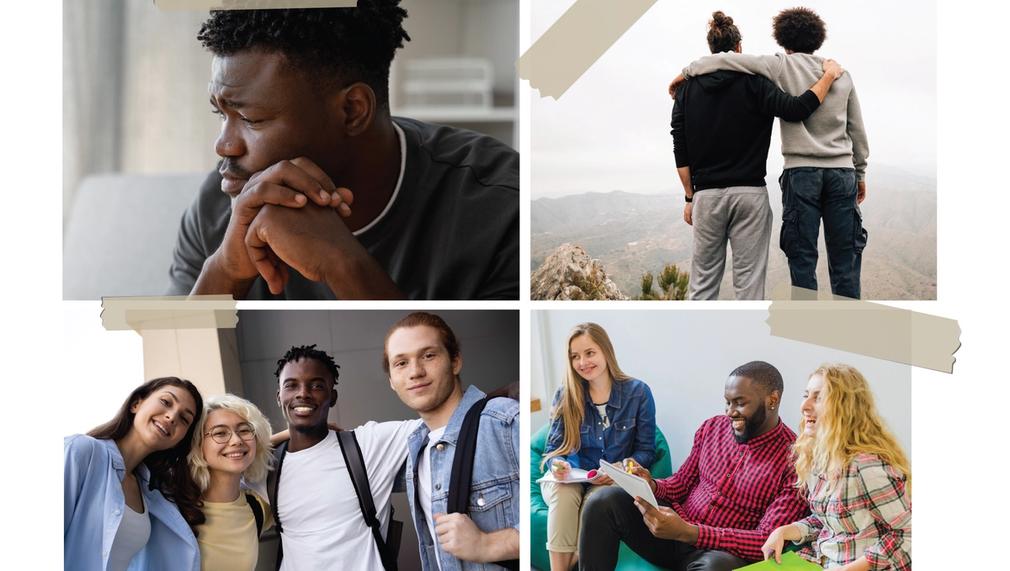Healing TAYgather: Mental Health Services for Foster Youth
Healing TAYgather is a new program that uses Peer Support Specialists to address the mental health challenges of youth in our Transitional Housing Placement Program, ages 18-24. Peer Specialists have shared, lived experience with our youth, including mental health challenges and involvement in the child welfare system. Peer Specialists can connect with youth on a personal level and establish bonds that would not be possible with traditional therapists, producing positive outcomes.

What is the primary issue area that your application will impact?
Support for foster and systems-impacted youth
In what stage of innovation is this project, program, or initiative?
Pilot or new project, program, or initiative (testing or implementing a new idea)
What is your understanding of the issue that you are seeking to address?
Foster/former foster youth experience trauma from being removed from their homes. 80% experience mental health challenges, such as depression and self-harm, as opposed to 18% of the population. Accessing care is hard. The public mental health system is difficult to navigate, public providers are costly, and there's a shortage of providers. Many low income BIPOC youth (like many in our program) avoid therapy, as they're from communities where mental health issues are stigmatized. Foster/former foster youth with mental disorders are at higher risk of homelessness, poverty, and incarceration. Foster youth who haven't addressed their mental health often go on to become foster parents - perpetuating the foster care cycle.
Therapy is most productive when clients feel understood. 90% of providers are white and few have experience in the child welfare system. Our youth don't feel as comfortable as they could with someone who shares a similar past and understands their socioeconomic culture.
Describe the project, program, or initiative this grant will support to address the issue.
Healing TAYgather is a trauma-informed program designed to address the unique mental health challenges of foster/former foster youth. It's a new program initiated by the Dept. of Social Services - Complex Care Building Initiative. Walden is the first and only to offer it. (Healing TAYgather is part of our L.A. Transitional Housing Placement Program, which provides free housing and wraparound services to help foster/former foster youth transition to adulthood). TAYgather is administered by trained and certified Peer Support Specialists (PSS). The program draws from the power of familiarity and how it builds essential bonds; PSSs have lived experience in the child welfare system and with mental health challenges. PSSs learn motivational interviewing and other evidence-based therapies and how to share appropriately. They gain knowledge about diverse populations and how to address stigma.
Initially, youth are screened for psychological disorders and referred to therapy. Some youth had bad experiences with therapy and resist. They're referred to group therapy. Youth begin therapy with a PSS, who connects by sharing personal experience and using it to advise and support . PSSs build trust that allows youth to share and accept crucial help. They offer group therapy in a safe space where youth feel respected.
Therapy is easy. PSSs travel to client homes; we provide transportation to groups and meals. Walden uses incentives, i.e. gift cards, to motivate youth to reach goals.
Describe how Los Angeles County will be different if your work is successful.
Foster/former foster youth can't become contributing members of the community with untreated mental health challenges. Over time, these challenges worsen and become debilitating; youth find themselves dysfunctional, leading to poverty, homelessness, and, often, incarceration. In fact, 50% of L.A.'s general homeless population has/had involvement in the foster system and one fifth of persons in the L.A. County jail system has/had involvement with the foster system.
To thin L.A.'s homeless and prison populations, we must care for foster youth and help them succeed. Ground one is treating their prevalent mental health challenges. With a balanced mind, youth can live productive lives that touch all our lives positively. This is what TAYgather seeks to accomplish.
The success of TAYgather will be most profound in the responsible parents our youth eventually become and their passing that down to the next generation. Together and TAYgather we'll put foster care out of business by 2050.
What evidence do you have that this project, program, or initiative is or will be successful, and how will you define and measure success?
Social Workers and PSSs survey youth at intake and administer the Casey Life Skills Assessment. Casey assesses behaviors and competencies, including mental, that youth need to achieve long-term goals and experience healthy lives.
PSSs record observations of and feedback from youth. Program Supervisor monitors PSSs and youth to ensure they're achieving positive outcomes. Our COO is a member of several boards and coalitions related to foster youth. She weighs TAYgather's outcomes against similar programs' outcomes to determine success. TAYgather is a new program, but we're seeing positive outcomes: 85% of youth achieved mental stability and 85% met their mental health goals. We're witnessing improved interpersonal relationship and coping skills and reduction in stigma
Long-term success includes 85% of youth complete a course of therapy; 80% reduction of psychiatric hospitalizations, 85% improvement in Casey Skills. Success also includes an increase in participants, dependent on funding.
Approximately how many people will be impacted by this project, program, or initiative?
Direct Impact: 65.0
Indirect Impact: 150.0